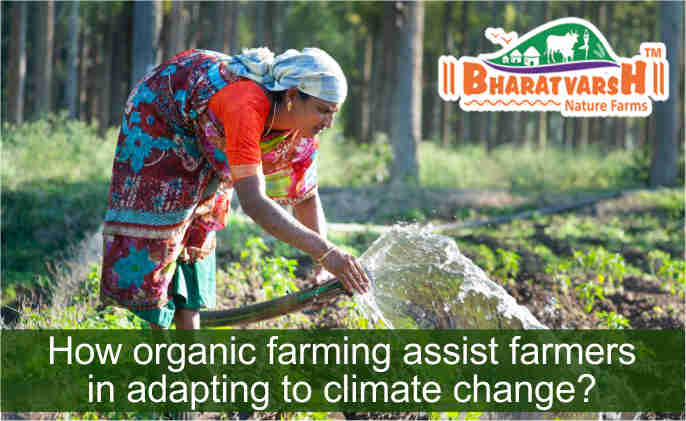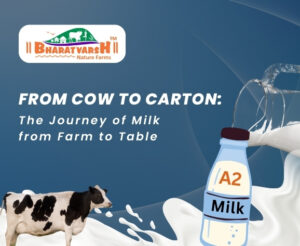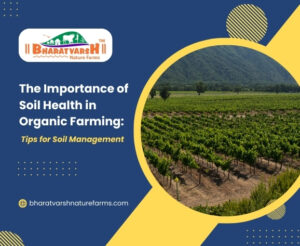Effects of climate change on farming
Farmers have been adapting to the conditions imposed on them by their region’s climate since the inception of agriculture. Recent human-induced climate changes like Extreme heat, floods, droughts, hail and windstorms, are pushing them further to the corner. On top of that there are changes in weed species and distribution, pest and disease pressures, in addition to potentially depleted soils and increased pest pressure. Climate change affects farming in several ways by bringing the change in
- average temperatures
- rainfall
- climate extremes (heat waves)
- pests and diseases
- atmospheric carbon dioxide and ground-level ozone concentrations
- the nutritional quality of some foods.
Impact of climate change on smallholder farmers
The impact of climate change is devastating for smallholder farmers. With rising global temperatures, rainfall has become more erratic, with longer dry spells (droughts) and shorter periods of more intense rainfall (floods). The rising carbon dioxide levels also bring down crops’ nutritive value.
Unpredictable rainfall patterns mean crops have less time to grow, producing less. Farmers resort to higher use of fertilizer and water to compensate, degrading the soil quality and lowering groundwater levels while spending much more to grow the same amount or less on the same acreage. This directly impacts overall productivity and there is no surety whether a crop planted by a farmer month in advance will hit the market during a shortage or a glut.
The climate crisis is forcing a rise in input costs to the point where farming is no longer profitable for many smallholder farmers.
How can farmers adapt to climate change?
Climate change poses a real threat to farmers around the world. Agriculture depends on good weather, including high and low temperatures, rainfall, wind intensity and many other variables. Only the sustainable agriculture practices can help increase the resilience of the agricultural system to the climate change impact:
- Diversifying crop rotations
- Integrating livestock with crop production systems
- Improving soil quality
- Minimizing off-farm flows of nutrients and pesticides
- Implementing more efficient irrigation practices.
Agricultural adaptation examples:
Several adaptation strategies, such as crop and livestock mix shifts, altered planting/harvesting dates, altered livestock rates, and increased pesticide use, have been implemented by farmers mostly acting in their own best interests. Some other examples include proactive measures such as crop and livelihood diversification, seasonal climate forecasting, community-based disaster risk reduction, famine early warning systems, insurance, water, storage, additional irritation and so on.
Organic agriculture:
Organic agriculture is a holistic production management system that avoids the use of synthetic fertilizers, pesticides, and genetically modified organisms, minimizes pollution of air, soil and water, and optimizes the health and productivity of interdependent communities of plants, animals and people. Organic farming helps farmers adapt to climate change because high soil organic matter content and cover help prevent nutrient and water loss. In turn, this makes soils more resilient to flooding, droughts, and soil degradation.
Organic agricultural farmers must implement a series of practices that minimize risk and optimize nutrient and energy flows, such as symbiotic nitrogen fixation with legumes, organic manure application, and biological pest control. Carbon sequestration, lower input of fossil fuel-dependent resources, and use of renewable energy all present opportunities for organic agriculture to reduce energy consumption and mitigate the negative effects of energy emissions.
Organic agriculture provides management practices that can help farmers adapt to climate change by strengthening agroecosystems, diversifying crop and livestock production, and building farmers’ knowledge base to prevent and confront climate changes.
Organic farming, climate change and adaptation strategies:
Organic agricultural systems have an inherent potential to reduce GHG emissions and enhance carbon sequestration in the soil. Therefore, organic agriculture can help to mitigate climate change by:
- Reducing emissions of greenhouse gasses (GHGs) and
- In the soil, CO2 is sequestered from the atmosphere.
Agricultural inventions that can power Climate Adaptation
Agriculture is one of the few sectors that can contribute to mitigating and sequestering carbon emissions.
- Agricultural diversity/Integrated farming– The more diverse an agricultural system, the greater its ability, on average, to adapt to climate change. Instead of focusing the farm on one kind of production (crops or livestock) integrated system combines them into four combinations
- Crops & Livestock
- Crops & Forestry
- Livestock & Forestry
- Livestock & crops
- Rehabilitate Degraded Pastures– There are several ways to rehabilitate Degraded Pastures. The most conventional way involves- applying fertilizers, which is not always sustainable for farmers. As pastures usually require new fertilizer applications every four to five years. Degraded Pastures can be more sustainably recovered by planting native forage or grass or introducing trees in the pasture to avoid soil erosion.
- Plant Agroforestry Systems- The concept of agroforestry is the intentional integration of trees and crops. As part of an Agroforestry system, every plant is selected for a specific purpose – species are chosen so that they will cooperate rather than compete. Due to the diversity of crops and trees in the area, small farmers can earn income all year long. Agriculture can play a huge role in adapting to climate change through agroforestry.
- Pursue Sustainable Forestry- Trees planted sustainably offer environmental benefits— such as capturing greenhouse gasses and protecting the soil– and the potential for economic gain through commercializing timber and non-timber forest products.
Practices like these provide a path for farmers worldwide to move to low-carbon agriculture and more resilient agriculture, producing the necessary food to feed the whole world while restoring the land. Adapting farms to climate change is a good policy for the environment, the economy, financial institutions, and insurance companies. In a world where the impacts of climate change are not just imminent but arriving, it is crucial to protect farms and farmers by finding a more resilient and sustainable model for agribusiness.
Contact Bharatvarsh Nature farms for organic farming in Nagpur:
If you’re interested in growing your own organic garden, you can contact us for some useful gardening tips. If you already have one, contact us for supply of organic fertilizers and pesticides for your rooftop garden, lawn or organic farm. You can find more details on our website: https://bharatvarshnaturefarms.com/
Write to us at: info@bharatvarshnaturefarms.com or call us at: 91-8603214214, 8650214214
Stay tuned to learn more about such interesting facts. Learn more about how to protect your plants from the coming monsoon?
Learn more : Tips to successfully manage and grow a dairy farm – Bharatvarsh Nature Farms




